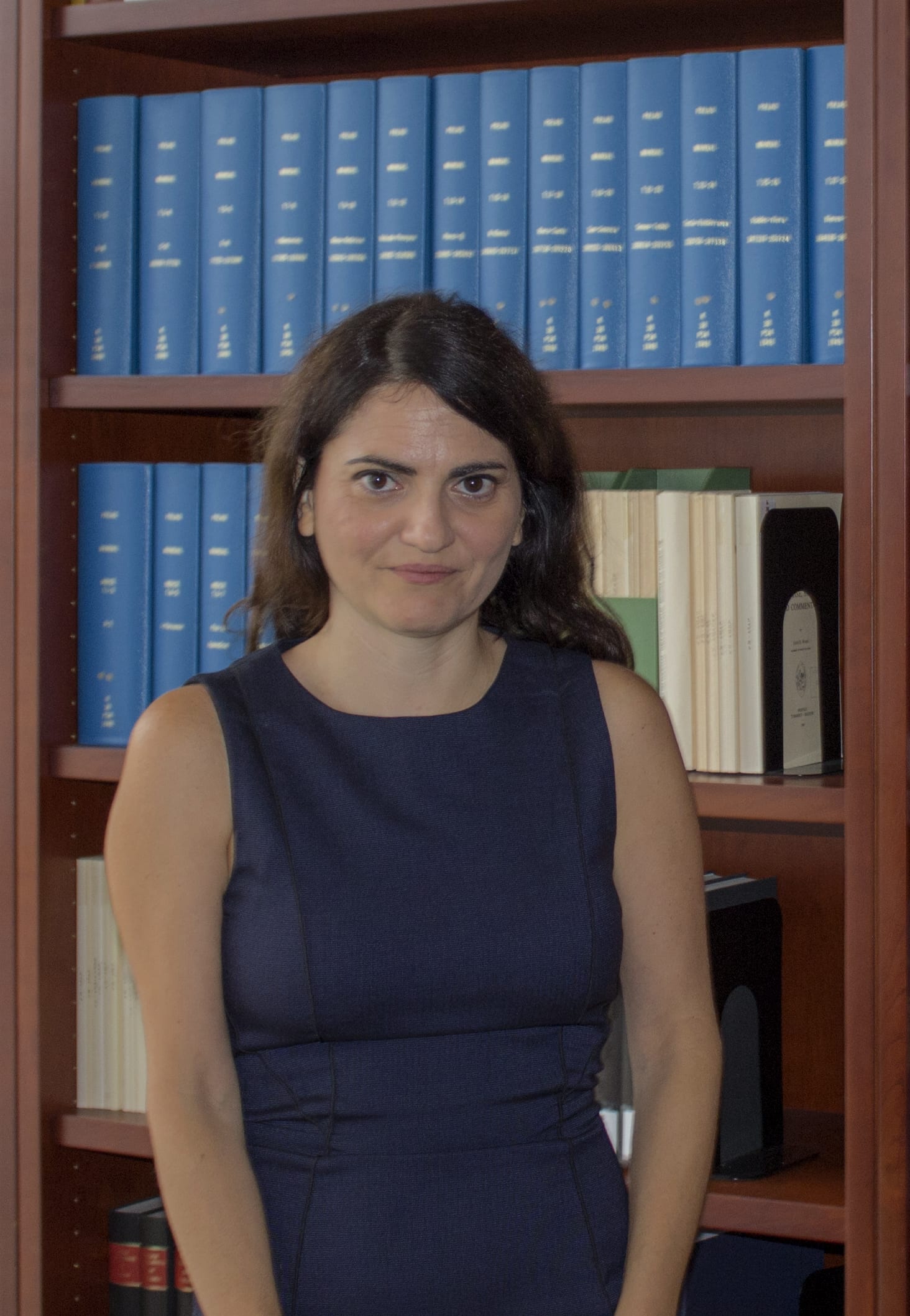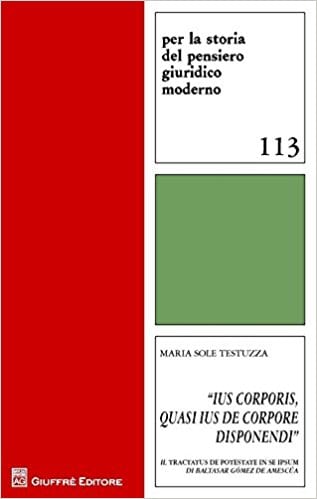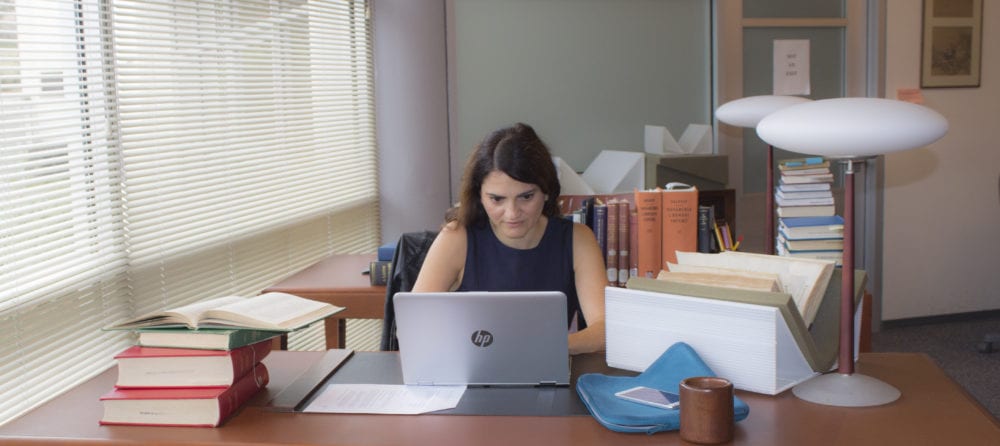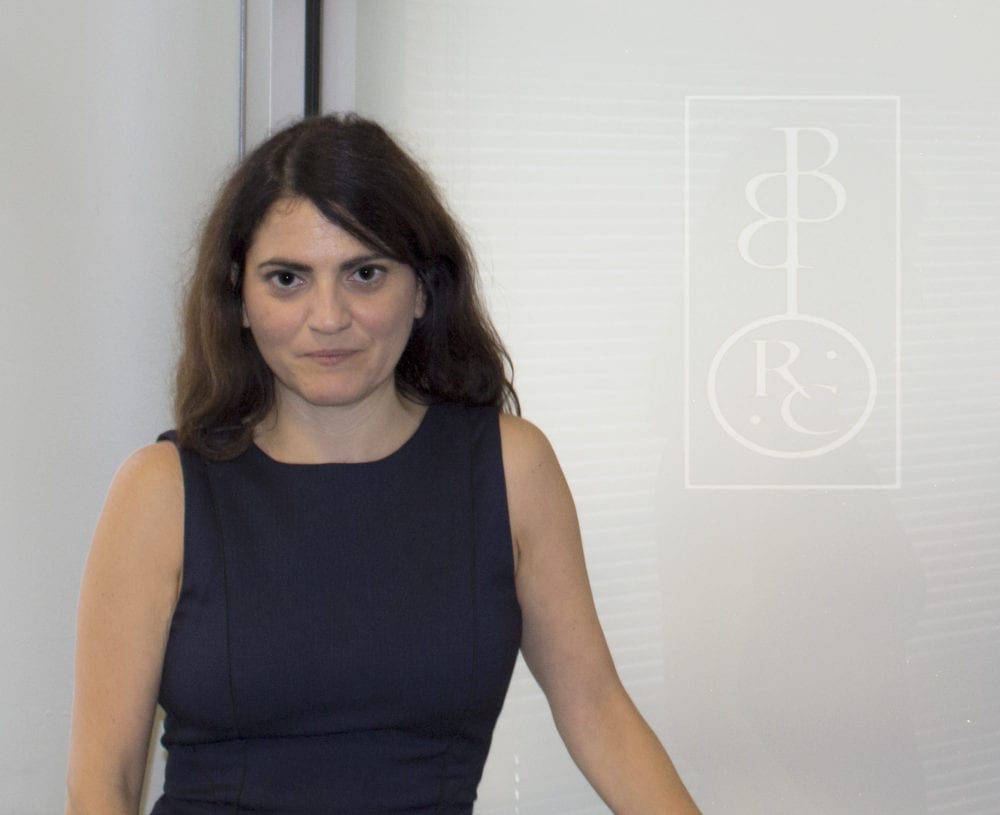 From August through September, the Robbins Collection proudly hosted the return of Maria Sole Testuzza, an Italian scholar whose work examines the historical emergence of legal subjectivity and the juridical relationship between the individual and the body. Since receiving her research doctorate from Italy’s University of Macerata in 2008, Dr. Testuzza has written two books, taught university courses, presented at conferences, and published papers in the field of human rights, particularly with regard to postulations of self-ownership and the historically transforming “representation of a potestas over oneself and over one’s own body.” Rather than base her conclusions on a single doctrine, Maria Sole uncovers the complexities of the issue by reconciling the numerous disputes between legal sources and moral theology texts from the 16th through 18th century.
From August through September, the Robbins Collection proudly hosted the return of Maria Sole Testuzza, an Italian scholar whose work examines the historical emergence of legal subjectivity and the juridical relationship between the individual and the body. Since receiving her research doctorate from Italy’s University of Macerata in 2008, Dr. Testuzza has written two books, taught university courses, presented at conferences, and published papers in the field of human rights, particularly with regard to postulations of self-ownership and the historically transforming “representation of a potestas over oneself and over one’s own body.” Rather than base her conclusions on a single doctrine, Maria Sole uncovers the complexities of the issue by reconciling the numerous disputes between legal sources and moral theology texts from the 16th through 18th century.
 Maria Sole was a Robbins fellow once before in 2009 when she was writing her first book, Tra cielo e terra: I congegni dell’obbedienza medieval, (Giappichelli, 2011). On the basis of medieval canon law, she investigated the medieval concept of obedience as a multifaceted and dynamic juridical category. In late 2016, Maria Sole published her second book, Ius corporis, quasi ius de corpore disponendi, (Giuffrè, 2016), in which she used the Tractatus de potestate in se ipsum by Baltasar Gomez de Amescua, to explore the juridical topic of self-ownership. For Maria Sole, the text stood out because of its author, Baltasar Gomez de Amescua. The Spanish letrado took on a new viewpoint in retelling the theological idea of dominium sui. By reconciling the texts of medieval ius commune, 15th and 16th century jurists, Castilian law, and Spanish scholastics, he transformed the theological postulation of a dominium super suos actus into a legal recognition of a dominium over one’s own body and produced a “sort of taxonomy of the legal use of this special property.”
Maria Sole was a Robbins fellow once before in 2009 when she was writing her first book, Tra cielo e terra: I congegni dell’obbedienza medieval, (Giappichelli, 2011). On the basis of medieval canon law, she investigated the medieval concept of obedience as a multifaceted and dynamic juridical category. In late 2016, Maria Sole published her second book, Ius corporis, quasi ius de corpore disponendi, (Giuffrè, 2016), in which she used the Tractatus de potestate in se ipsum by Baltasar Gomez de Amescua, to explore the juridical topic of self-ownership. For Maria Sole, the text stood out because of its author, Baltasar Gomez de Amescua. The Spanish letrado took on a new viewpoint in retelling the theological idea of dominium sui. By reconciling the texts of medieval ius commune, 15th and 16th century jurists, Castilian law, and Spanish scholastics, he transformed the theological postulation of a dominium super suos actus into a legal recognition of a dominium over one’s own body and produced a “sort of taxonomy of the legal use of this special property.”
Working in the Robbins Reading Room these past couple summer months, Maria Sole’s focus is on expanding the research and conclusions laid out in Ius Corporis. She has turned her scholarly attention to the historical development of rights, duties, and the body in the modern school of natural law. To investigate further into the topic of corporeal duties and necessities, Maria Sole analyzed texts from the Robbins Collection such as, 17th century works by Spanish Jesuit Luis de Molina, 17th century commentaries on the work of Hugo Donellus, and 17th century dissertatio by German scholar, Johann Samuel Stryk, among others.

Though she worked daily in the Robbins Reading Room for the past two months, Dr. Testuzza found time to appreciate the diverse neighborhoods and walkable detours abound in San Francisco and Berkeley. Upon completing her visiting fellowship, Maria Sole will return to Italy where she will be working as a research fellow at the University of Florence’s School of Law. In Florence, she will continue her work done at Robbins, investigating the iura in corpore between the 17th and 18th centuries. The Robbins Collection very much looks forward to the work and writing that Maria Sole Testuzza will produce from her new questions and ideas.

Click here to read publicly accessible works by Maria Sole Testuzza.
Learn more about the Robbins Collection titles and subjects Maria Sole is analyzing for her research:
Photos of Maria Sole: Sohayla Farman
Cover photo of Ius Corporis: courtesy of Giuffrè
11/07/17